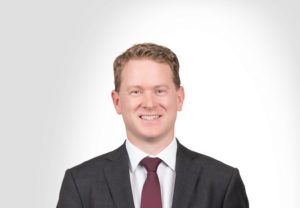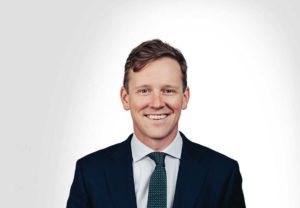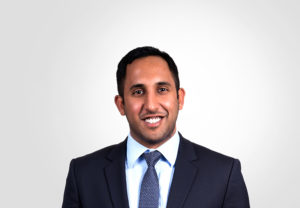In this Q&A, lawyers from Mourant, the Jersey-headquartered international law firm-led, professional services business look at a range of different funds regulations and trends to tackle in 2025.
Q&A
What strategies can lawyers in Guernsey and Jersey use to address regulatory uncertainty in funds investing in cryptocurrencies, tokenised assets, or blockchain-based instruments? Alistair Horn (pictured above) – partner, Mourant
"Lawyers in Jersey and Guernsey can address regulatory uncertainty around funds investing in cryptocurrencies, tokenised assets, or blockchain-based instruments by adopting a range of strategies.
"Where necessary, engaging early with local regulators, such as the Jersey Financial Services Commission (JFSC) and the Guernsey Financial Services Commission (GFSC) is likely to ensure compliance with existing frameworks and alignment with emerging guidance. Leveraging established regulatory structures for funds also provides a solid foundation where there is crossover or a degree of similarity.
"Strong anti-money laundering (AML) and counter-financing of terrorism (CFT) measures are also critical, particularly given the potential for illicit activities in cryptocurrency transactions, and should align with the high standards expected in both jurisdictions.
"Staying informed on global regulatory trends is vital, as Jersey and Guernsey often align their frameworks with international standards.
"Collaboration with the local blockchain and cryptocurrency industry is also helpful in helping position Jersey and Guernsey as leaders in the evolving digital asset space. Jersey in particular is fortunate enough to have a burgeoning crypto sector, whilst Guernsey helped launch Europe’s first spot Bitcoin ETF and has introduced a VASP regulatory framework. This combination of proactive engagement, technical expertise, and adaptability enables lawyers to navigate the uncertainties of this emerging sector effectively."
How are environmental, social, and governance (ESG) factors influencing the structuring and operation of investment funds, and what legal considerations arise? Felicia de Laat – partner, Mourant & James Cousins - partner, Mourant

"It wasn't all plain sailing for fund managers marketing ESG and sustainability focussed funds in 2024, with regulators introducing further greenwashing measures and some investors, particularly those with significant assets under management in the United States, backing away from ESG networks and initiatives and even the use of the term ESG itself.
"However, despite this, ESG and sustainability factors continued to have a significant impact on the structuring and the operation of investment funds, whether specifically ESG focussed or not and impact focussed funds saw continued growth. While climate change action has been a key focus of ESG focussed funds, the market for funds targeting benefits for biodiversity and natural capital has continued to grow.
"In 2024, the naming of funds came under closer scrutiny as a result of the FCA's new anti-green washing measures but much else stayed the same, with fund legal advisers continuing to advise managers launching funds on disclosure under the EU Sustainable Finance Disclosure Regulations and/or the UK's Sustainability Disclosure Requirements. At an operational level, ESG and sustainability considerations also continued to affect the entire investment and divestment process from the due diligence process for potential acquisitions, performance reporting and the ongoing value creation process applied to portfolio companies.

"In November 2024, the Government of Jersey issued its Sustainable Finance Action Plan which laid out its ten strategic priorities for the next three years, including aligning its corporate sustainability disclosures with internationally recognised sustainability disclosure standards and the launch of new products to attract sustainable capital and deploy it globally. The action plan noted that the assets under management (AUM) of ESG oriented regulated funds in Jersey reached almost 20% of total funds under management in Jersey with the prospects for the whole of Jersey's funds industry ESG oriented AUM to reach £123 billion by 2026.
"Furthermore, Guernsey has developed a Sustainable Funds Framework, which currently includes two designations: the Guernsey Green Fund and the Natural Capital Fund. The former is for funds through which investments into various green initiatives can be made, with the objectives of mitigating environmental damage and climate change. The latter is broader, for funds through which investment can be made into initiatives which make a positive contribution to, and/or significantly reduce harm done to the natural world."
How will evolving macroeconomic conditions, such as high interest rates or inflation, influence the structuring of private equity and venture capital funds? Alex Henderson – Partner, Mourant

"I don’t think we'll see much change in the actual structuring of PE/VC funds because of current macroeconomic conditions. The core components of private equity and venture capital fund structuring have remained reasonably consistent since the late 1980s.
"Interest rates for much of that period were higher than, or similar to, the kind of rates that we're seeing now and there have also been temporary spikes in inflation (although none quite as extreme as in 2021-2023). If you were to compare the structure of a PE/VC fund from the early 90s with a current structure, you'd be looking at something broadly similar. The changes are far more likely to have been driven by changes in the tax and regulatory environment rather than macroeconomic conditions.
"What we might see is tweaks to fund terms and changes in demand for exposure to certain asset classes. Changes to fund terms are likely to focus on interest rates and hurdles – although these have been remarkably stable throughout a variety of macroeconomic conditions over the last few decades (with most PE funds still setting the hurdle at 8%). A focus on costs, and a possible reduction in PE/VC allocations from investors drawn to stable assets that are performing better in a higher interest environment, may mean we see some pressure on fees.
"We've already seen that to some extent over the last few years so perhaps we'll see more incentives and discounts rather than reductions in headline rates. In terms of asset classes, higher interest rates create more opportunities for alternative credit providers. Investment sectors with lower capital requirements are likely to be attractive, such as technology and software, because of the higher margins and lower borrowing requirements.
"The higher cost of capital, making it harder to cheaply fund quick growth projects, means we'll likely see a continuation of different liquidity solutions. This will allow managers more time to develop assets whilst also providing returns to investors that need them."
How are changes in investor preferences influencing the legal structuring of alternative funds, such as hedge funds, real estate funds, and distressed asset funds? Stefan Chinniah – counsel, Mourant

"Investors preferences are shifting towards funds that incorporate sustainable investing practices, prioritise impact investing, and offer flexible fund terms.
"This has led to growing number of funds with tailored strategies designed to meet those needs (e.g., ESG-focused funds or those with bespoke liquidity terms) and enhanced reporting obligations to accommodate investor demands for more flexible, transparent, and responsive fund managers.
"The democratisation of funds continues to be an interesting development, with innovative platform structuring options being developed to widen access for investors."
Are local fund administrators and legal experts in the Channel Islands collaborating more closely with UK and international counterparts? Roisin Cullinane - counsel, Mourant

"We are seeing increasing collaboration between local fund administrators and legal experts in the Channel Islands and UK and international counterparts. Jersey’s proximity to the UK and its strong regulatory framework makes it an attractive jurisdiction for cross-border fund structuring.
"Local advisers work closely with international counterparts to ensure funds are structured efficiently and comply with multi-jurisdictional regulatory requirements. Jersey offers a fast regulatory approval process with flexible and user-friendly regulatory regimes which is appealing to both local and international clients.
"This collaboration allows for the seamless integration of Jersey-based funds into global investment strategies, while also ensuring compliance with evolving global regulations, including those concerning digital assets, ESG, and tax matters."
What key lessons should fund managers and investors take from 2024 when planning for 2025? Joel Hernandez – head of funds, Jersey and partner, Mourant

"To improve fundraising efforts in 2025, fund managers should reflect on the key takeaways from 2024. The upcoming year may offer better conditions for fundraising, assuming economic and interest rate environments continue to stabilise.
"However, the lessons learned from 2024 indicate that investors have become increasingly selective in their choices, placing greater emphasis on proven track records and unique value propositions.
"For established, blue-chip fund managers with a history of strong performance, fundraising is expected to be relatively easier, aided by loyal investors returning for "re-ups." In contrast, newer or emerging fund managers will likely still face challenges in securing new capital, especially given the current investor market, which remains discerning.
"A critical takeaway from 2024 is the importance of managing expectations around the time needed to reach fundraising milestones, particularly the first or second closing. The past year has demonstrated that fundraising can take longer than anticipated, requiring patience and persistence.
"Looking ahead to 2025, while conditions may improve, it will likely remain an investor-driven market with demand exceeding supply. Successful fund managers will be those who can clearly differentiate themselves by offering a focused sector specialization, geographic expertise, or a compelling investment thesis related to emerging trends or disruptive opportunities. Building a strong narrative around these differentiators will be key to attracting investor interest and closing successful fundraising rounds."
Sign up to our Newsletter
Unlimited access to real-time news, industry insights and market intelligence

Latest Stories
Sign up to our newsletter
Unlimited access to real-time news, industry insights and market intelligence.
© Investment International | Site By Furness Media